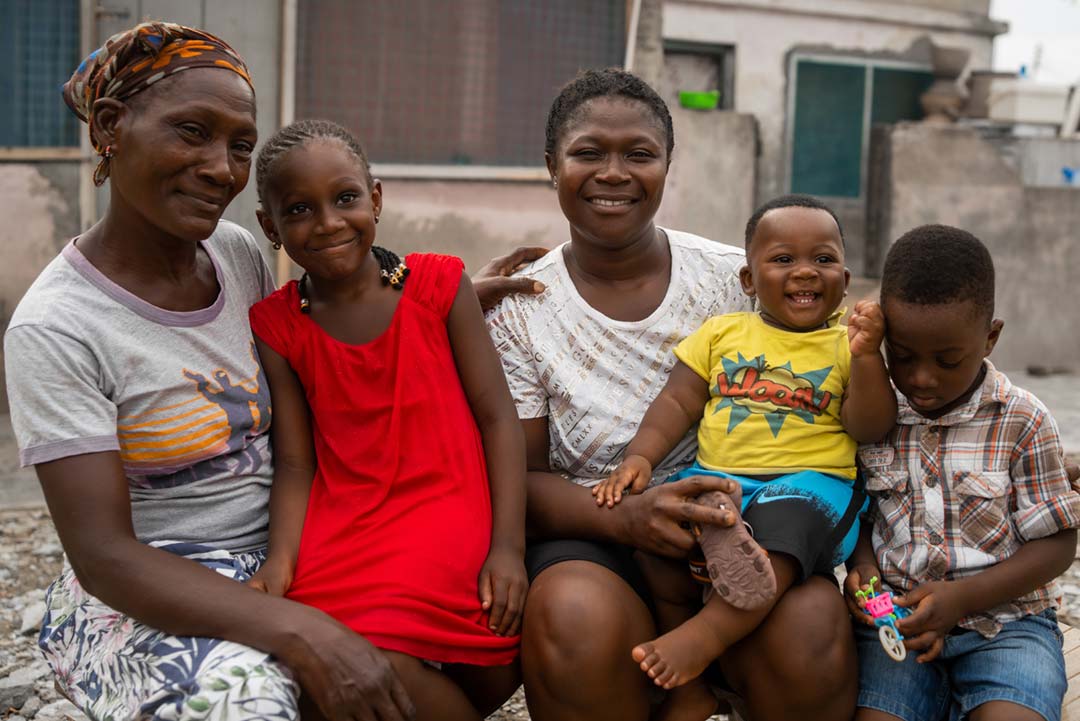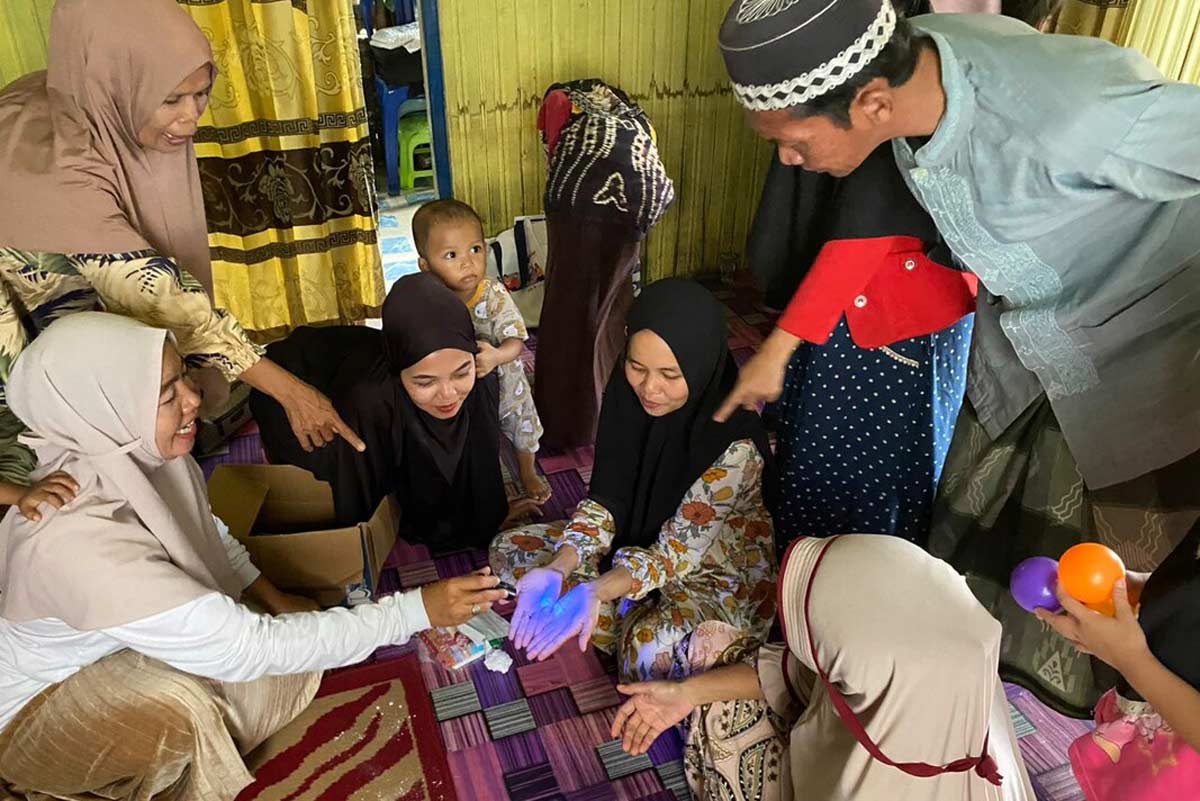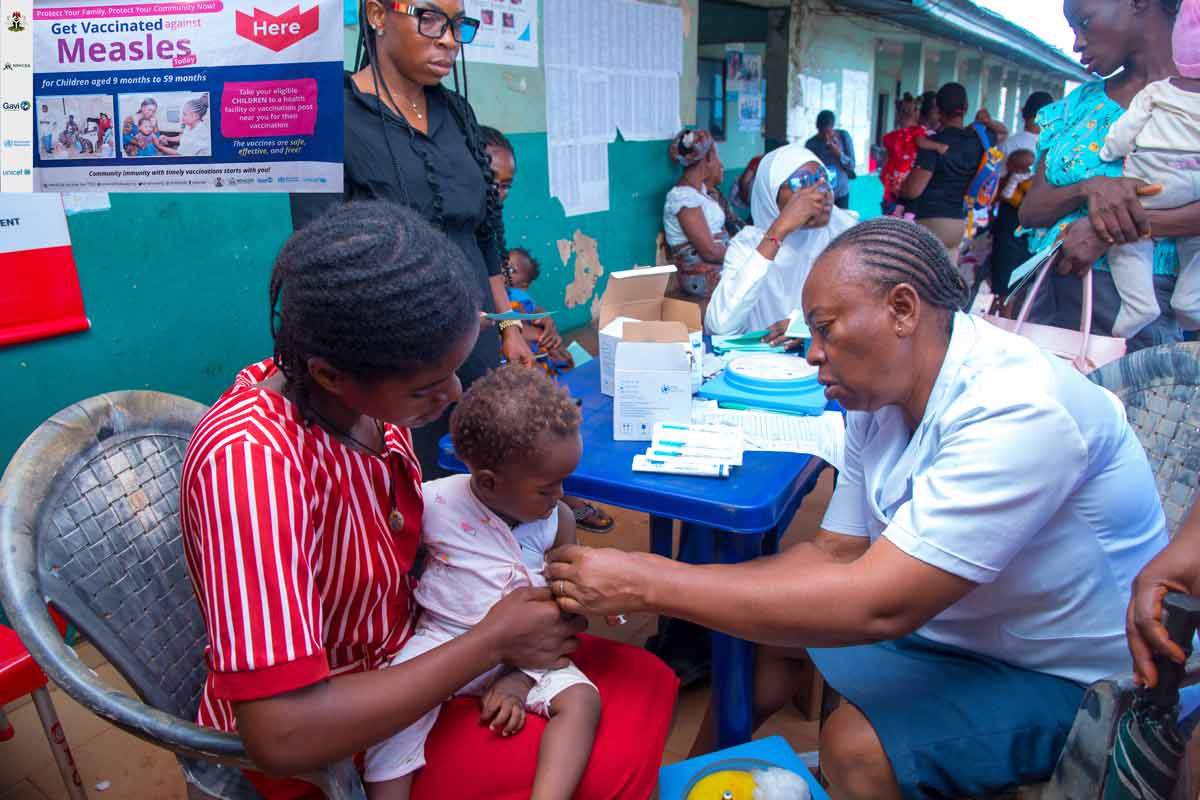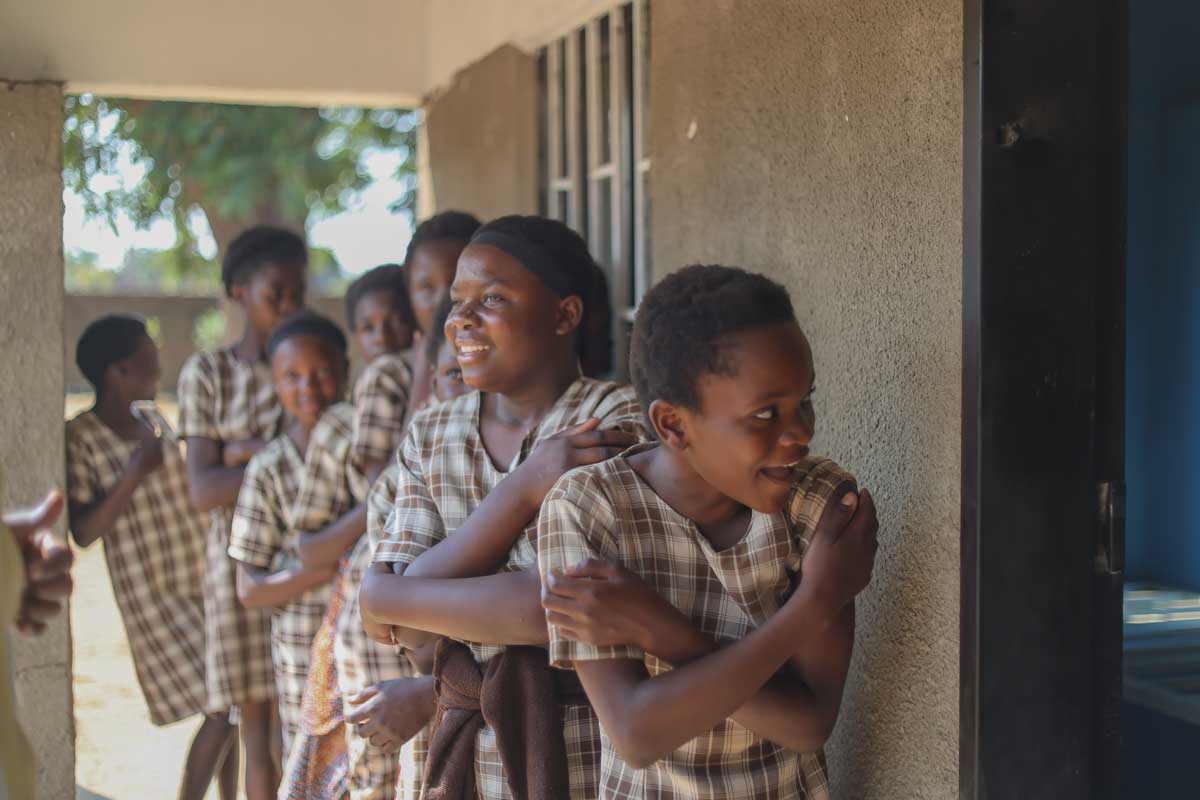The number of children in a family can influence access to vaccines
New research suggests the number of siblings in a family is a factor in determining whether or not children receive any essential immunisations.
- 19 April 2024
- 4 min read
- by Gavi Staff

In 2022, 14.3 million children never received a single lifesaving vaccine, according to the World Health Organization (WHO). These "zero-dose children" are already among the most world's most vulnerable, as they are likely to be clustered in areas affected by conflict and humanitarian emergencies, remote rural areas and in families living in poverty.
Understanding how to reach them with vaccines is critical to safeguarding them from infectious diseases that can kill them, or leave them with lifelong negative health impacts such as disability.
Prevalence of zero-dose increased from 11.0% for firstborn children to 17.1% for children who were born fifth or later, and from 10.5% for children with no siblings to 17.2% for those with four or more siblings.
As these children often fall through the cracks in regular vaccine delivery programmes, understanding factors that correlate with missing out on vaccines can improve efforts to reach them.
Research had already indicated that the number of siblings a child has and their birth order were important predictors of whether a child would be unimmunised. But few studies had looked at both factors together.
Now, the largest set of analyses on this issue, published in eClinicalMedicine(part of The Lancet journals) analysed data for nearly 400,000 children from 85 low- and middle-income countries. They studied nationally representative cross-sectional surveys between 2010 and 2020 with information on the immunisation status of children aged 12–35 months.
Have you read?
The regions with the largest number of countries represented in the study were West and Central Africa (22 countries), and Eastern and Southern Africa (18 countries), followed by East Asia and the Pacific (13 countries), Latin America and Caribbean (11 countries), Middle East and North Africa (8 countries), Eastern Europe and Central Asia (7 countries) and South Asia (6 countries).
The indicator for whether or not a child has access to routine immunisation was defined by whether they have received any doses of a diphtheria, pertussis and tetanus-containing (DTP) vaccine. The study was done by a team including Tewodaj Mengistu and Daniel Hogan from Gavi, and scientists from Federal University of Pelotas and Federal University of Parana in Brazil.
The team found that the number of children in a family is more strongly predictive of zero-dose children than birth order.
They studied 375,548 children, of whom 13.7% were classified as zero-dose. Prevalence of zero-dose increased from 11.0% for firstborn children to 17.1% for children who were born fifth or later, and from 10.5% for children with no siblings to 17.2% for those with four or more siblings.
Once these findings were adjusted for confounding factors, the number of siblings remained a strong predictor of no immunisation, whereas birth order did not . At the same time, within-family analyses showed clustering of zero-dose children within the same households: when the youngest sibling was unvaccinated, 69.8% of the older siblings were also unvaccinated.
“In order to reduce morbidity and mortality due to infectious diseases, large families should receive special attention during immunization efforts, and siblings of unvaccinated children should be actively traced regardless of their age.”
– Child immunization status according to number of siblings and birth order in 85 low- and middle-income countries: a cross-sectional study
On the other hand, when the youngest sibling was vaccinated, only 8.3% of the older siblings were unvaccinated. This suggests a high-likelihood of a zero-dose child having siblings that are also unimmunised.
These findings have important implications for immunisation programmes, and are particularly relevant for the current "Big Catch-Up" effort to help countries recover following the pandemic. If a zero-dose child is found, it is very likely that their older siblings are also missing out on immunisation, and would benefit from catch-up vaccination.
As the authors state: "In order to reduce morbidity and mortality due to infectious diseases, large families should receive special attention during immunization efforts, and siblings of unvaccinated children should be actively traced regardless of their age."









